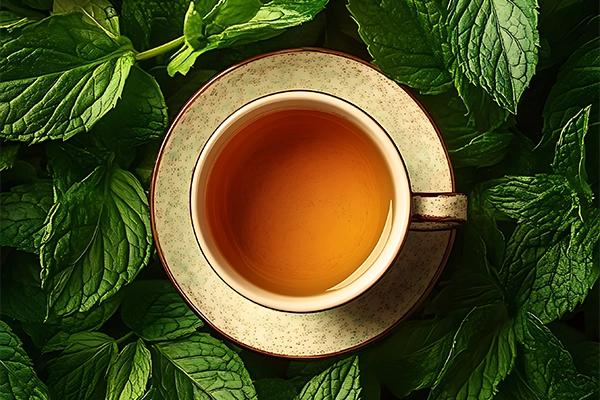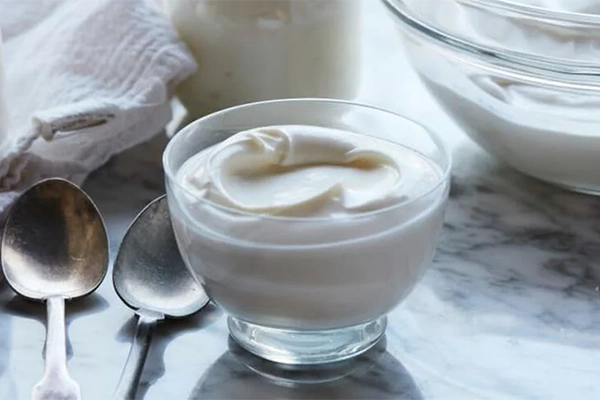Black tea is one of the most beloved hot beverages across the world, with a rich history and deep cultural roots. Its bold flavor, inviting aroma, and vibrant color have made it a daily staple in many households. Beyond its delicious taste, black tea is also praised for its numerous health benefits — from boosting energy and focus to supporting heart health and aiding digestion.
To fully enjoy the benefits of black tea, it’s important to prepare it correctly. Factors such as water temperature, steeping time, and the right tea-to-water ratio all play a key role in enhancing both its flavor and nutritional value.
In this article, we’ll dive into the key health benefits of black tea and guide you step-by-step through the proper way to brew a perfect cup. If you’re looking to better understand this classic beverage and learn how to make it just right, you’re in the right place.
👉 Explore our full range of premium teas in the
GREEN & BLACK TEA category
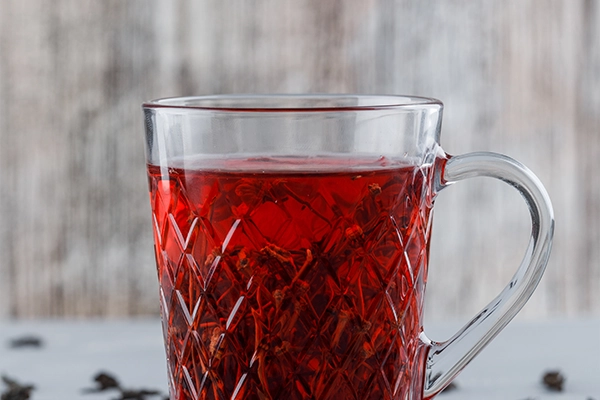
How to Brew Black Tea Properly + Top 20 Black Tea Benefits
Black tea is one of the most popular hot beverages in the world, beloved for its rich flavor, pleasant aroma, and comforting warmth. However, to truly enjoy all black tea benefits, it’s essential to prepare it correctly. From water quality to steeping time, every detail plays a role in the final taste and health effects of this classic drink.
In this article, we’ll walk you through the correct steps for brewing black tea and explore 20 powerful black tea benefits that can support your health and wellness.
How to Brew Black Tea Properly
While brewing black tea may seem simple, following the right steps ensures you unlock its full flavor and aroma. Here’s a breakdown of the process:
Step 1: Choose the Right Type of Black Tea
Black tea comes in three common forms:
- Loose-leaf black tea – Higher quality, full-bodied taste, and traditional preparation in a teapot.
- Tea bags – Convenient, available in both pyramid and flat bags. Pyramid bags often contain fuller tea leaves and offer better flavor.
- Packaged leaf tea – Sold in boxes, often similar in quality to loose-leaf and used for traditional brewing.
For the richest experience and maximum black tea benefits, loose-leaf or packaged teas are recommended.
Step 2: Use Good-Quality Water
The taste of tea is heavily influenced by the water. Use fresh, filtered, or mineral water free of chlorine. Water should be fully boiling (around 100°C) for black tea to release its full flavor and nutrients.
Step 3: Measure and Steep Properly
Use 1 to 1.5 teaspoons of dry black tea per cup. Add boiling water over the tea in a ceramic or porcelain teapot. Let it steep for 5–7 minutes. Oversteeping may result in bitterness.
Step 4: Enhance the Flavor (Optional)
- Add spices like cinnamon or cardamom for a regional twist.
- Use a tea warmer to keep the teapot at the right temperature.
- To mellow the strength, dilute the brewed tea with a bit of hot water.
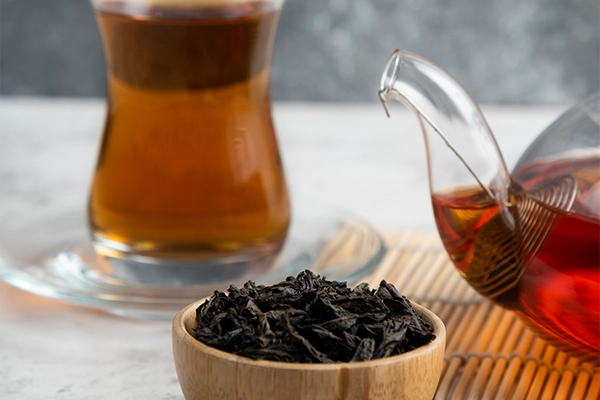
Top 20 Black Tea Benefits for Health and Wellness
Here are 20 scientifically supported black tea benefits that make this drink a smart choice for everyday wellness:
1.Rich in Powerful Antioxidants
Black tea contains polyphenols and flavonoids that reduce oxidative stress and protect against chronic diseases.
2.Promotes Heart Health
One of the leading black tea benefits is improved cardiovascular function by lowering bad cholesterol and supporting blood pressure.
3.Supports Digestive Health
Anti-inflammatory properties aid digestion, relieve gut discomfort, and balance gut bacteria.
4.Enhances Focus and Alertness
Natural caffeine in black tea boosts mental clarity and sustained energy without the crash of coffee.
5.Helps Regulate Blood Sugar
Regular black tea consumption may improve insulin sensitivity and lower the risk of type 2 diabetes.
6.Aids in Weight Management
Among notable black tea benefits is its ability to boost metabolism and support fat-burning.
7.Strengthens the Immune System
Rich in vitamins and minerals that improve the body’s defense against infections.
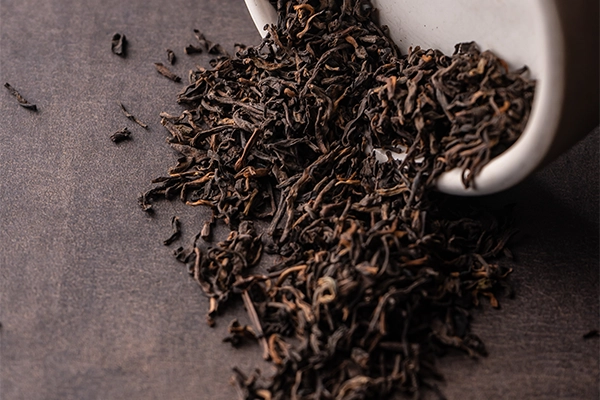
8.Improves Oral Health
Antibacterial properties reduce bad breath and prevent plaque buildup and cavities.
9.Reduces Stress and Improves Mood
Compounds in black tea help regulate cortisol and promote a sense of calm and well-being.
10.Supports Healthy Skin
Antioxidants protect skin cells and slow signs of aging, including wrinkles and dullness.
11.Eases Inflammation and Pain
Anti-inflammatory effects help manage joint pain and reduce chronic inflammation.
12.Boosts Brain Health
Drinking black tea regularly may protect against Alzheimer’s and Parkinson’s by enhancing brain function.
13.Provides Long-Lasting Energy
One of the key black tea benefits is its slow-releasing caffeine, offering sustained energy without jitters.
14.Supports Bone Strength
Some compounds in black tea may enhance bone density and reduce the risk of osteoporosis.
15.Promotes Liver Health
Black tea helps detoxify the liver and protect it from fat accumulation and damage.
16.May Extend Lifespan
Due to its many black tea benefits, regular consumption is linked to better longevity and quality of life.
17.Protects Against Certain Cancers
Studies suggest compounds in black tea may help prevent cancers of the colon, prostate, and skin.
18.Enhances Eye Health
Flavonoids in black tea may lower the risk of cataracts and age-related vision issues.
19.Improves Sleep Quality
When consumed moderately, black tea can support better sleep by reducing anxiety and tension.
20.Fights Chronic Inflammation
One of the most vital black tea benefits is its ability to reduce inflammation linked to diseases like diabetes and heart disease.
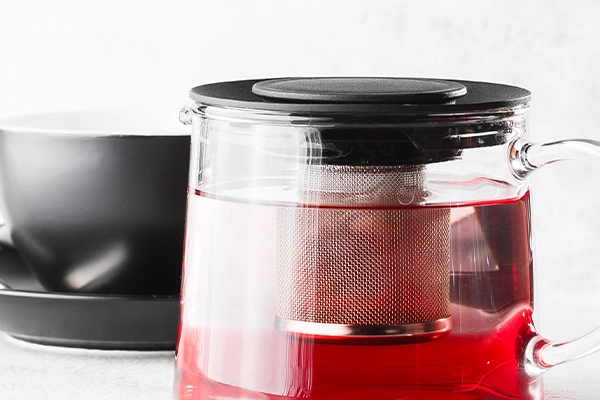
Black Tea Side Effects: What You Need to Know
While black tea offers many health benefits, excessive or improper consumption may lead to some unpleasant side effects. Maintaining balance and being aware of key considerations can help prevent these potential health concerns. Below are the 10 most important side effects of black tea explained in detail.
1. Insomnia, Anxiety, and Increased Heart Rate
The caffeine in black tea can lead to insomnia, anxiety, rapid heartbeat, and even panic attacks when consumed in excess—especially for individuals who are more sensitive to caffeine. Those who struggle with sleep should be particularly cautious.
2. Reduced Iron Absorption and Anemiah3
The tannins and polyphenols in black tea can interfere with iron absorption from food. This is especially important for people with anemia, pregnant women, and children. It’s recommended to avoid drinking black tea with or immediately after iron-rich meals.
3. Digestive Problems
Too much black tea may irritate the stomach and cause acid reflux, indigestion, or nausea. Individuals with ulcers or gastrointestinal disorders should consume black tea in moderation and monitor their body’s reaction.
4. Headaches and Dizziness
Excessive caffeine intake can lead to headaches, dizziness, and in some cases, nausea. Suddenly stopping black tea after long-term use may also result in withdrawal symptoms such as severe headaches or fatigue.
5. Tooth Staining
Black tea contains pigments that can cause yellow stains on teeth if consumed frequently, especially without proper oral hygiene. Brushing regularly and flossing are essential for preventing discoloration.
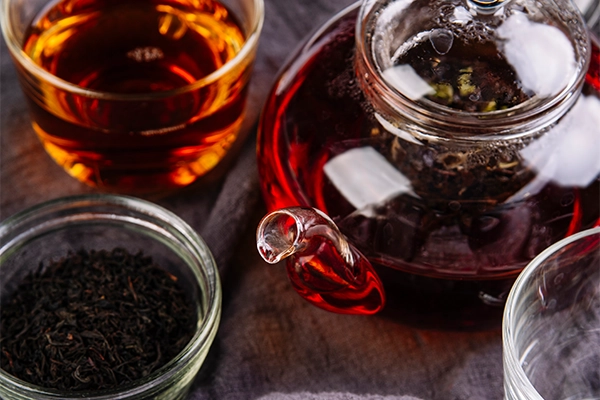
6. Nervous System Stimulation
High amounts of caffeine may overstimulate the nervous system, leading to restlessness, irritability, and sleep disturbances.
7. Interaction with Medications
Black tea may interact with certain medications, including blood thinners and antidepressants. If you are on medication, consult your healthcare provider before consuming black tea regularly.
8. Increased Risk of Kidney Stones
Due to its oxalate content, overconsumption of black tea may increase the risk of kidney stone formation—especially in individuals with a history of kidney stones.
9. Allergic Reactions
Some individuals may have allergic responses to compounds in black tea, leading to skin rashes, itching, or even breathing difficulties.
10. Effects During Pregnancy and Breastfeeding
High caffeine consumption during pregnancy may lead to complications such as low birth weight or premature delivery. Pregnant women are advised to limit their black tea intake and consult their doctor.
Conclusion
Black tea is not only one of the most enjoyable everyday beverages, but it also plays a valuable role in a health-conscious lifestyle. As discussed, the black tea benefits and side effects cover a wide range—from boosting immunity, heart health, and mental clarity, to helping with weight control and blood sugar regulation.
However, it’s important to consume it in moderation. Overconsumption may lead to problems such as insomnia, reduced iron absorption, or stomach irritation. Balance is the key to maximizing the health advantages of this flavorful and beneficial drink.
✅ Looking for high-quality, aromatic, and authentic black tea? Faraz Hypermarket offers a diverse range of top-rated Iranian and international black tea brands. Whether you’re a daily tea drinker or a connoisseur, you can browse our collection in the Green & Black Tea category and find your perfect brew—delicious and good for your well-being.


